Delius and Puccini: how’s that for an operatic odd couple? Delius, that most faded of British masters, now remembered largely as a purveyor of wistful aquarelles. And…well, and Puccini. Early, neglected Puccini, true, but this is Opera Holland Park, where they make it their mission to rescue the waifs and strays of Italian late romanticism, and see how they scrub up. Demonstrable dud by unfashionable Englishman vs youthful ambition from Italian opera’s ultimate marquee name. We all knew, in advance, how that was likely to play out.
And we were all wrong. It turns out that both Puccini’s Le Villi (1884) and Delius’s Margot la Rouge (1902) were written for the same long-running competition that gave us Mascagni’s Cavalleria Rusticana. A nice connection; more interesting is the way in which these one-acters, in angling for the prize, attempt something untypical of their composers and end up revealing what makes each man tick. Margot is a brief, brutal tale of the Parisian demi-monde, set to luminous music: in other words, English verismo. I honestly didn’t see that coming, any more than I’d previously clocked the curiously Germanic flavour of Puccini’s first opera – a dance-driven supernatural shocker, all waltz-songs and pale, lingering clarinets.
For OHP, Martin Lloyd-Evans sets both operas in the same revolving wooden shack, with Anne Sophie Duprels as the heroine of each. Peter Auty wrapped his no-nonsense tenor vigorously around Puccini’s love-rat hero Roberto, Paul Carey Jones projected sonorous menace as Delius’s murderous pimp L’Artiste and Samuel Sakker sounded suitably tender as his rival Thibault. They all orbited around Duprels, the reigning queen of these troubled, underperformed late 19th-century heroines – Mascagni’s Isabeau, Leoncavallo’s Zazà, Charpentier’s Louise. There’s a streak of acid in her voice; a tarnished edge that she uses to temper the prevailing sweetness, though she can certainly soar when she chooses. In Margot, she gradually thaws; in Le Villi she begins as a heartbroken bride and ends as an avenging spectre. Duprels is convincing all the way.
Sensibly, Lloyd-Evans plays both operas pretty much straight, with Francesco Cilluffo and the City of London Sinfonia sounding thoroughly inside both idioms. If Delius never quite finds the focus to create genuinely vivid musical personalities for his characters, it’s fascinating to hear him locate the one section that speaks to his nature – a love-duet drenched in nostalgia for a vanished happiness – and fly with it. Puccini, meanwhile, makes all the right moves, but not necessarily in the right dramatic order. A spoken narration explains that Roberto has yielded to ‘lewd excess’ with a ‘siren’, and that his abandoned bride has died of grief. A more experienced Puccini would get a whole opera out of that (it’s called Madama Butterfly). In Le Villi he cues the dancers, and the overall impression (as Gounod once put it) is all sauce but no fish. That’s no fault of the cast or company.
Since 1993, Bampton Classical Opera has been staging obscure 18th-century operas on the lawn of an Oxfordshire deanery. Literally: there’s no permanent theatre or even much by way of a temporary one. Audiences bring their own picnics and chairs and sit there in Gore-Tex and pac-a-macs, munching away throughout. (We were advised that the opera would move to the church if it rained, though I suspect it would have taken a Thames valley tsunami to shift this crowd.) An amplified announcement requested the relocation of a VW Polo, which was blocking a neighbour’s drive.
But there was nothing ad hoc about the performance of Fool Moon, aka Haydn’s Il mondo della luna. Haydn’s operas tend to wilt in the theatre, but as entertainment for a very English fête champêtre the bubbling absurdity of this Goldoni-based farce was ideal. Three pairs of young lovers convince the tyrannical patriarch Buonafede that he’s been transported to the moon: where, this being 1777, he immediately enquires about Lunar court etiquette. Haydn’s happy, endlessly generous score includes celestial minuets and an ensemble in moon language, as well as some entertainingly flashy arias, delivered with brio by a youthful cast and a pair of lively dancers.
Siân Dicker added just the lightest spritz of pathos as Flaminia while Jonathan Eyers maintained a gangly dignity as Buonafede, despite spending much of Act Two with a colander on his head. If anything, he was almost too genial to play the miser, though that, too, suited the prevailing atmosphere of good-natured lunacy – which extended from Gilly French’s witty and ingenious English translation (perfectly audible in the open air) to the surreal, Clangers-inspired sets by director-designer Jeremy Gray. The rain held off, the orchestra was buoyant, and it all ended happily around a colossal glowing cheese-grater. You probably had to be there but they’re repeating it next month at Westonbirt and in September at St John’s Smith Square, so you still can.
Got something to add? Join the discussion and comment below.
Get 10 issues for just $10
Subscribe to The Spectator Australia today for the next 10 magazine issues, plus full online access, for just $10.
You might disagree with half of it, but you’ll enjoy reading all of it. Try your first month for free, then just $2 a week for the remainder of your first year.

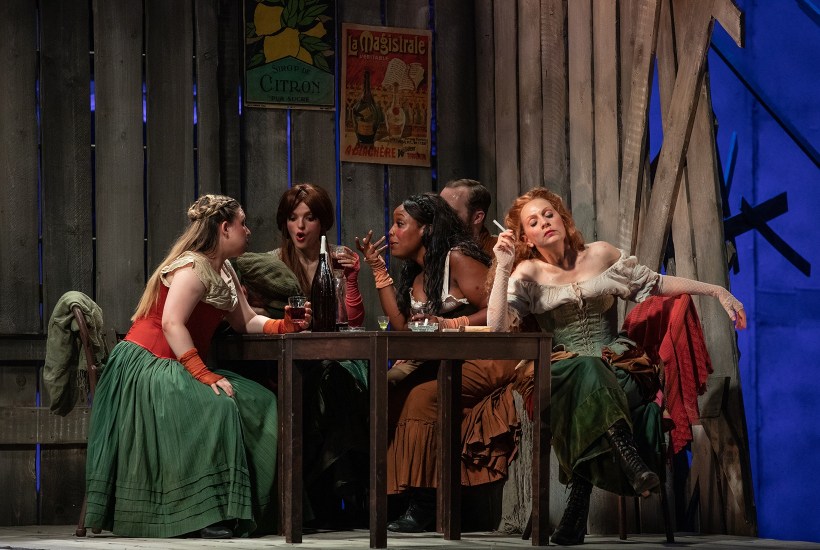
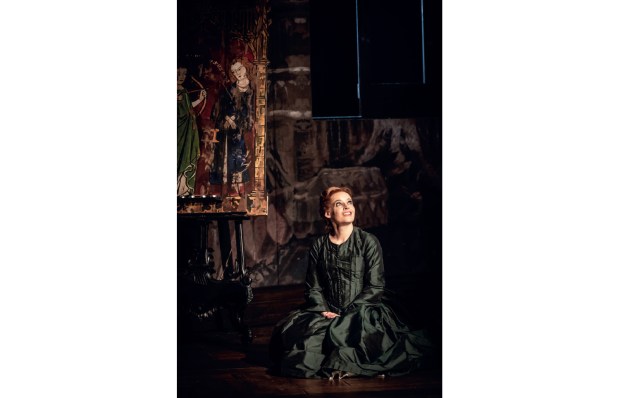
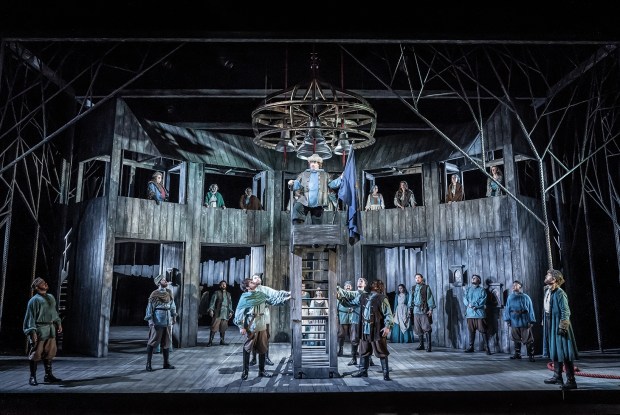
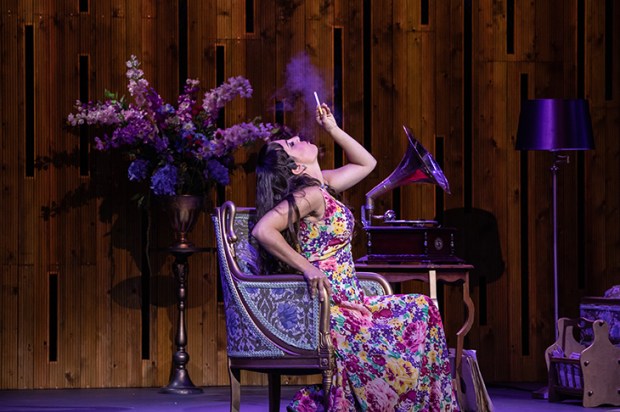
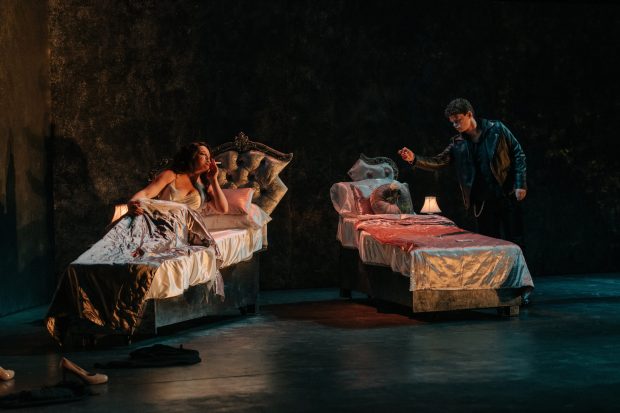

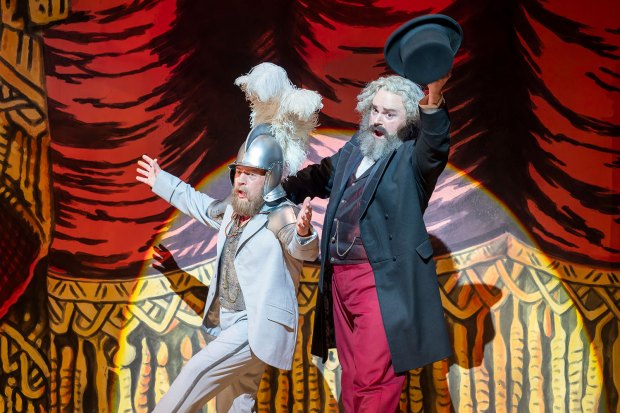






Comments
Don't miss out
Join the conversation with other Spectator Australia readers. Subscribe to leave a comment.
SUBSCRIBEAlready a subscriber? Log in